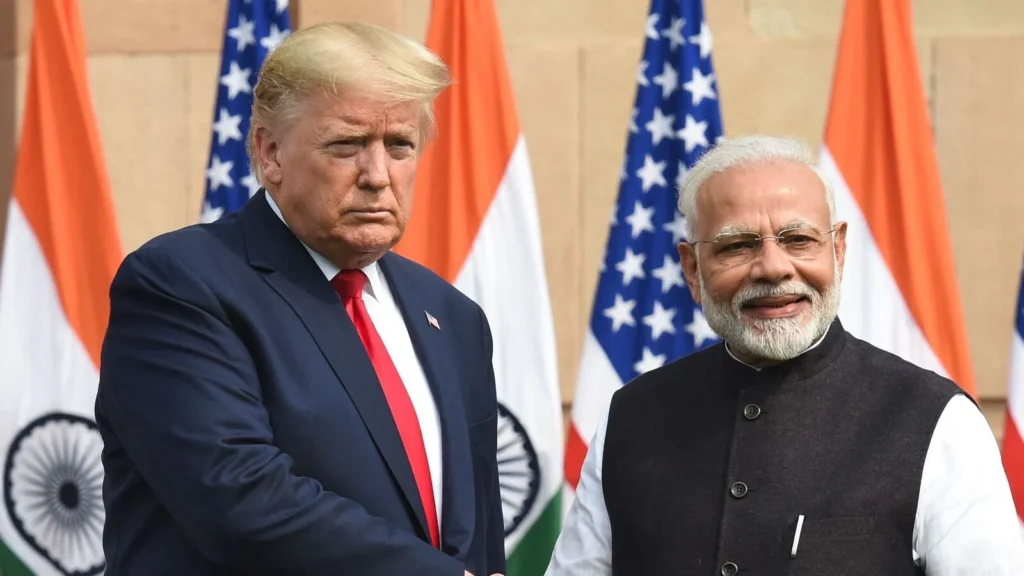U.S. Reciprocal Tariffs Shake Global Trade: India Responds with Potential Duty Cuts


Significant trade policy changes are underway as U.S. President Donald Trump prepares to impose “reciprocal tariffs” on multiple trading partners, including India. Dubbed “Liberation Day,” this policy aims to counteract what the U.S. perceives as unfair tariffs on American goods. The move has sparked global economic concerns, with analysts warning of potential trade wars and disruptions in international supply chains.
In response, India has signaled its willingness to reduce tariffs to avoid escalation. President Trump, commenting on the development, stated, “I heard that India is going to be dropping its tariffs substantially. A lot of countries are going to drop their tariffs.”
The proposed U.S. tariffs could significantly impact several Indian industries, potentially reshaping global trade flows.
Apparel Industry: The U.S. accounts for approximately 28% of India’s textile exports. Higher tariffs could make Indian apparel less competitive, allowing countries like Vietnam and Bangladesh to gain market share.
Jewelry Sector: India’s exports of diamonds, gold, and silver, valued at $11.88 billion, may face a 13.32% duty hike. This could raise jewelry prices in the U.S. and impact Indian exporters’ global competitiveness.
Processed Food and Sugar: Exports worth $1.03 billion could see a 24.99% tariff increase, making Indian snacks, spices, and confectionery significantly more expensive for American consumers.
The anticipation of these tariffs has led to fluctuations in Indian financial markets:
Indian Rupee: The rupee depreciated, opening 22 paise lower at 85.68 against the U.S. dollar, reflecting investor anxiety.
Stock Market: Despite uncertainties, India’s benchmark indices NSE Nifty 50 and BSE Sensex recorded slight gains of 0.27% and 0.45%, respectively, as investors speculated on potential diplomatic resolutions.
China has shown interest in importing more Indian products as part of an effort to strengthen trade ties. This comes amid shifting global trade dynamics and as both countries look to ease geopolitical tensions following past border disputes. If realized, this could open new export opportunities for Indian businesses, especially in agriculture, technology, and pharmaceuticals.
With negotiations ongoing, global markets remain on edge, awaiting official announcements from the U.S. and policy adjustments from impacted nations. The long-term effects of these tariffs could reshape trade partnerships, influence foreign exchange rates, and determine the future of international commerce.